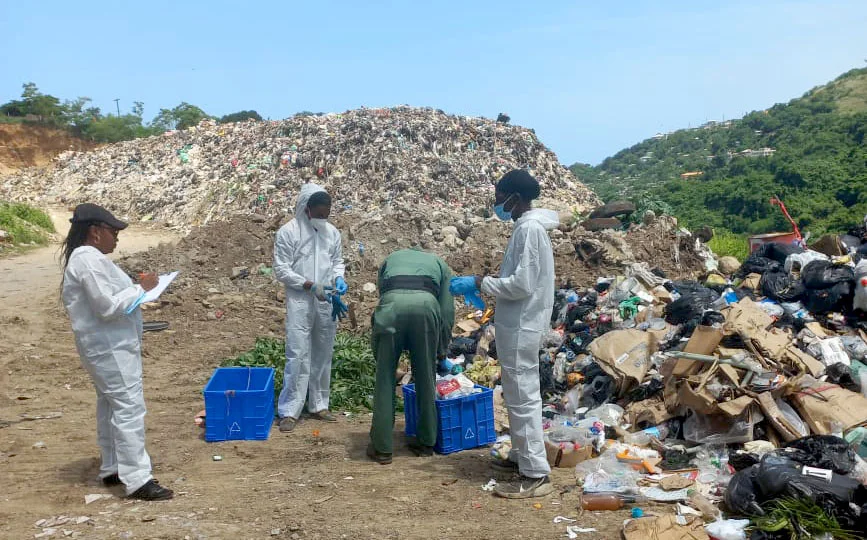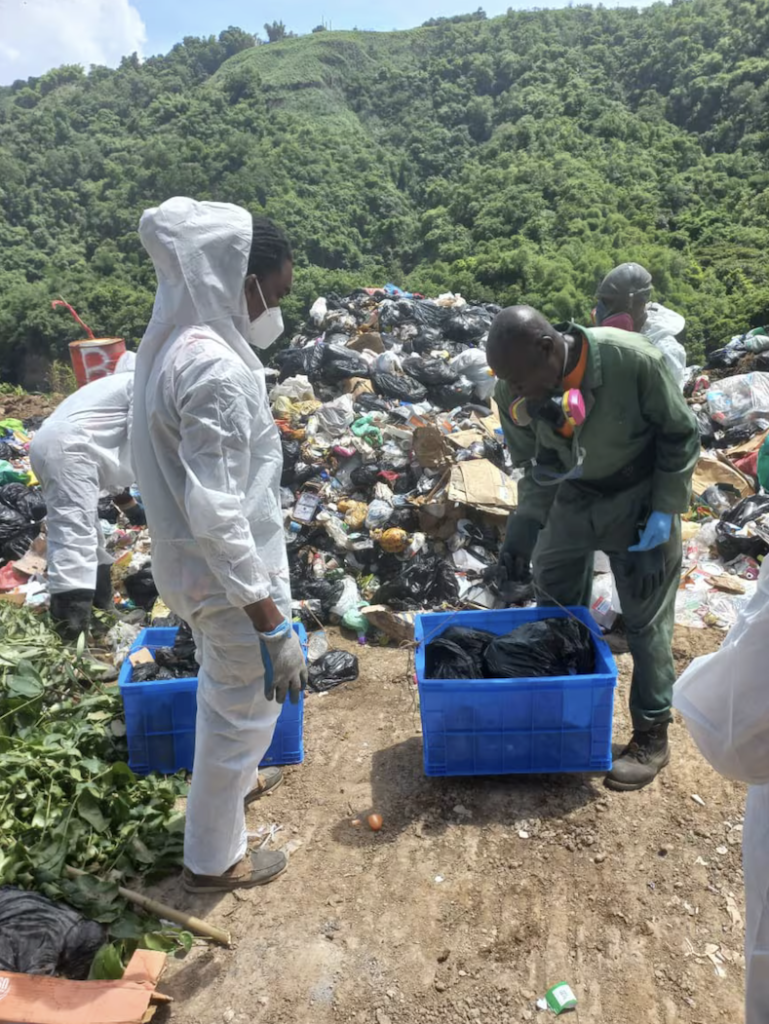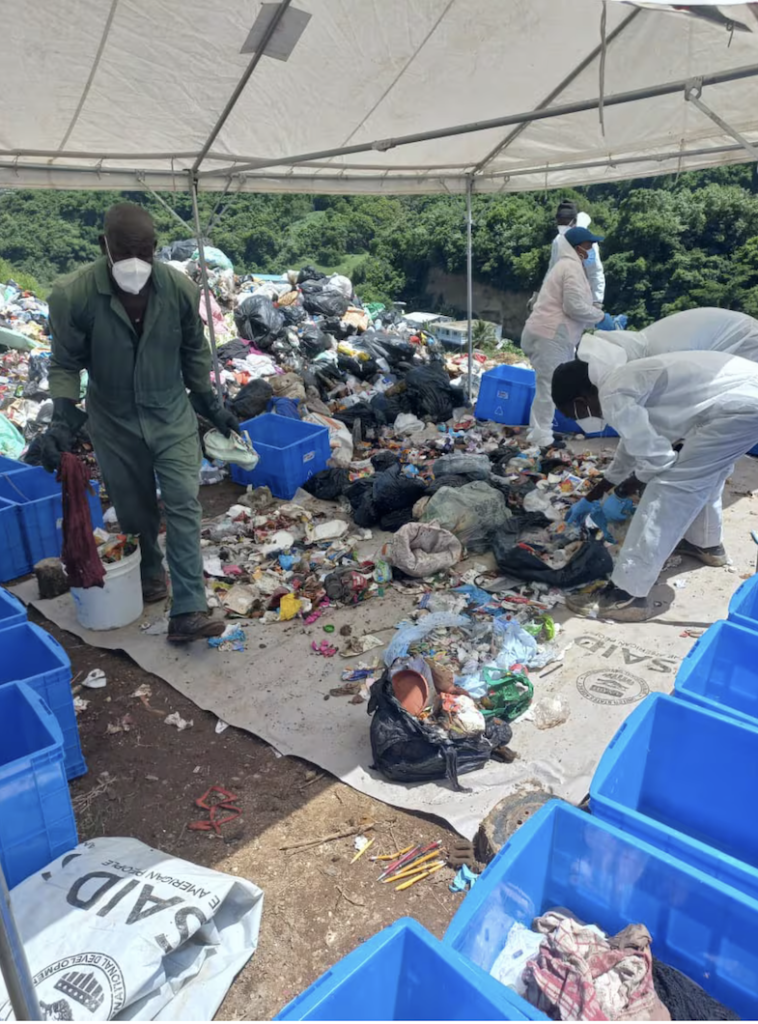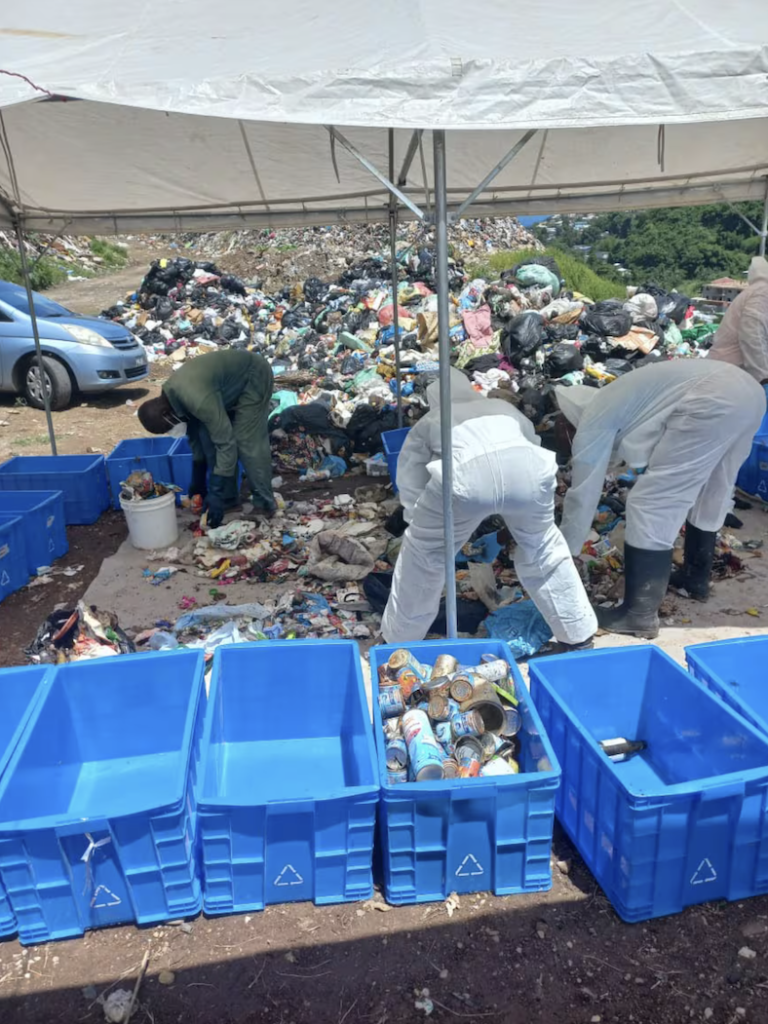DSWMC Waste Characterisation Study Informs Modalities for Recycling Sustainability in Dominica

August 8, 2023 — The Dominica Solid Waste Management Corporation (DSWMC) has completed its second Waste Characterisation Study in 21 years. The findings of the study will inform the evaluation of Dominica’s recycling potential, assessment of organic waste management options, and policy and decision making. Dominica and Grenada are the two OECS Member States demonstrating the OECS Model for Plastic Waste Separation, Collection, and Treatment, under the EU/AFD funded Recycle OECS Project.
Established in 1996, and operationalized in 1997, the DSWMC conducted its first study in 2002. This initial assessment informed the construction of the landfill site at Fond Colet, ahead of the closure of the existing dumpsites at Roseau and Portsmouth. Since then, no other waste classification studies had been undertaken until now.

According to DSWMC General Manager, Florian Mitchel, waste characterisation studies play a crucial role in assessing the recoverable materials present in the waste stream and for establishing baseline data. “They provide the basis for many operational decisions. They generate an array of data sets that guide everything from what operational modalities, to inventory, and even what cost structures are feasible for waste management services to households.” He went on to explain that the incorporation of plastic recycling as a waste reduction strategy in the OECS, will “create notable changes in the waste management value chain, as people, communities and businesses willingly and consistently separate their waste for collection. These findings are valuable to track and analyse current and future trends,” he added.
The study team of 13 DSWMC officers was led by Dale Cozier, a Waste Management specialist from the Seureca/Unite Caribbean Consortium. The consortium is contracted by the OECS to provide technical support for the design of the Recycling Model and its demonstration in two Member States.

The Recycle OECS Model for the demonstration phase has been designed and validated by Waste Management Authorities (WMA) across the OECS. It will be enhanced through lessons learned from the demonstrations, emerging opportunities, and other new pertinent information as it becomes available. Technical and Economic Pillars are among the five core pillars of the Model. Mr. Cozier explained that the study enables the evaluation of the technical and economic feasibility of implementing recovery and recycling initiatives.
The other pillars buttressing the model focus on Financing, Regulation and Social intervention, and communication. The first pillar considers options for sustainable financing for long term operation and viability of the model. The second addresses governance structures such as policy and regulation, and management arrangements. According to Mr. Cozier, the composition of municipal solid waste highlights variations by community or region, which are influenced by waste generation practices by households and businesses. He stated, “The last pillar is about people, what and how they dispose of waste. The analysis guides the WMA on how to approach public education and capacity building internally, and at various levels of the value chain to empower all generators of waste to separate their waste at the source, recycle and ultimately extend the life of the landfill, and reduce plastic pollution.”

The sampling plan used for the study involved collecting and manually sorting multiple waste samples during the period from 22nd to 28th July 2023, at the Fond Cole Landfill. During this period, approximately 3,900 lbs of waste was sorted. The nine primary waste categories used for sampling were paper and paperboard, glass, metal, plastics, textiles, organics, construction and demolition (C & D) wastes, special care wastes and other wastes.
Recall that the model will be enhanced incrementally through lessons learned from the demonstrations and new information as this becomes available – so the model is not considered complete





